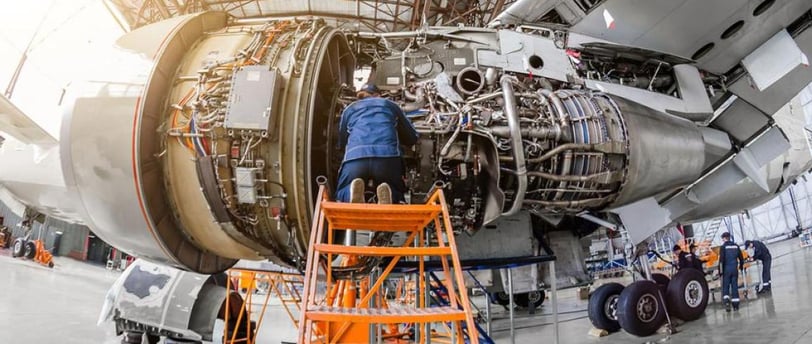Interview with Mr. Majd Chalak
Mr. Majd Chalak, an experienced aerospace and mechanical engineer, answers common questions regarding aerospace engineering as a major and career.
Sanjay Ravishankar
2/12/20243 min read
As an aerospace engineer, Mr. Majd Chalak shares his experience with aspiring students. In addition to his college and work experience, Mr. Chalak offers advice and suggestions to high school students who aim to major in aerospace engineering.
Where did you go to college, and what was your major?
I got my master degree in aerospace engineering from University of Washington, SeattleHow was your college experience?
It was great, especially when you pursue a degree of interest. You’ll face bumps here and there, but through persistence you’ll succeed. You get to meet people, make friends as well as work on interesting projects. Best experience is when you gather with your research circle (friends) to work on some aerospace course project. Collective effort and teamwork are truly powerful. It transcends the learning experience to another level of intellect and knowledge seeking.
Why did aerospace engineering appeal to you?
As a kid, I got fascinated looking up to the night sky, observing stars at first. I was driven by Stephen Hawking’s famous saying, and I quote “Remember to look up at the stars and not down at your feet. Try to make sense of what you see and wonder about what makes the universe exist. Be curious. And however difficult life may seem, there is always something you can do and succeed at. It matters that you don't just give up.” Consequently, seeing these flying objects amazed me. Growing up, my interest grew even larger, having a bachelor in mechanical engineering, I decided to pursue the master in aerospace engineering.
What was your experience in aerospace engineering before college?
No experience at all. Pure interest and curiosity to know more.What is the typical day-to-day work for an aerospace engineer?
It depends on what field within aerospace one is working on.
Manufacturing as an example, would be more in an industry-like environment, with a lot of machines and people putting parts together.
Control systems would mostly be sitting in the office, working on coding adequate lines to make sure the spacecraft is controlled and observed accurately at all times. Or, it could be that you’re trying to set up and calibrate sensors on the spacecraft and/or satellites.
Mechanics of materials, would involve research and lab experiments to test materials ought to be used based on its intended application.
Design engineering is using CAD software to create designs for spacecraft, including all its detailed components (Fuselage, electric wiring, wing shape…)
Structural vibration and analysis would, to the most part, be based on “Finite Element Analysis” aka FEA. This analysis will be done on the design done by engineers, and communication is crucial to make necessary changes.
Fluid mechanics work, which will also analyze how the general shape of the space and/or aircraft react to winds and natural resistance caused by it. That also includes analyzing the lift/down/drag forces caused on these specific designed shapes.
How did your college experience help you in your work?
Mathematics, thermodynamics, physics, chemistry and electric circuits are crucial for aerospace engineering. Most importantly, coding using software like MATLAB, Python, C++, and designing software like “CATIA, SolidWorks, ANSYS and many more, are software that you get exposed to during your degree pursuit.Do you have any suggestions for aspiring aerospace engineers?
Persistence and discipline are key for success in the degree pursuit. Other than a bachelor in aerospace, you can pursue aerospace engineering based on one of the following: mechanical, electrical, manufacturing engineering, or computer engineering. However, aerospace and mechanical based degrees provide more flexibility in choosing an area of focus (mentioned in question 5).What do you think is the most important thing to know before majoring in aerospace engineering?
I feel obliged to mention that the aerospace field is under ITAR (International Traffic in Arms Regulation). Only nationals can work in the field, and many of the applications would require job seekers to have the ability to obtain security clearance.
Thank you, Mr. Chalak, for your insightful answers!


